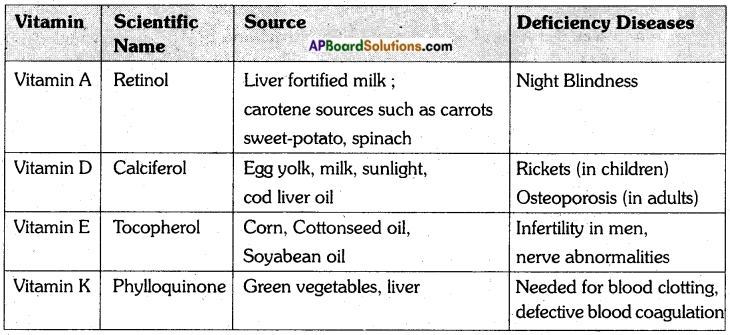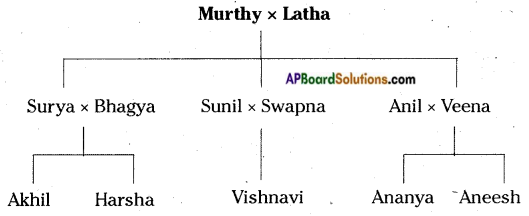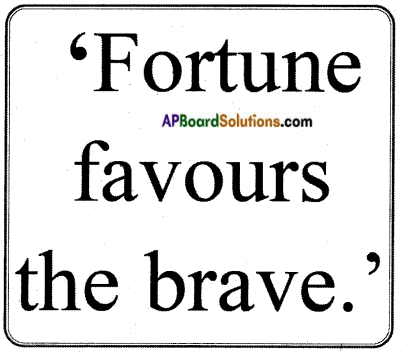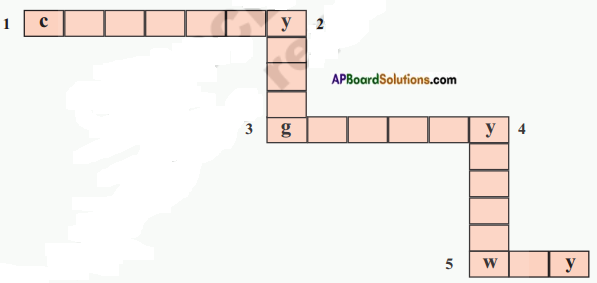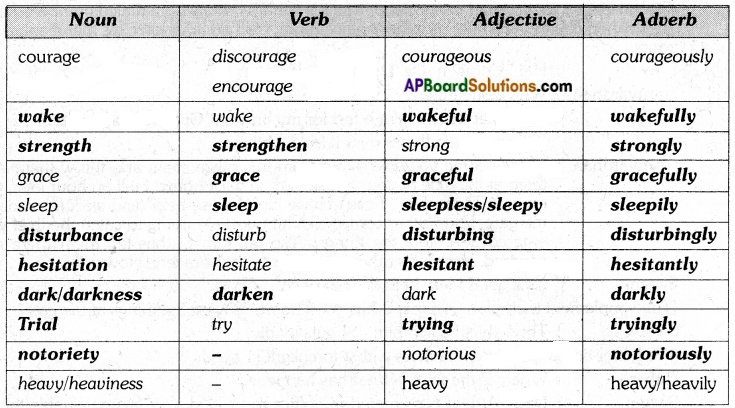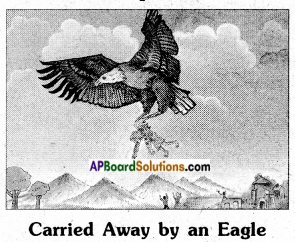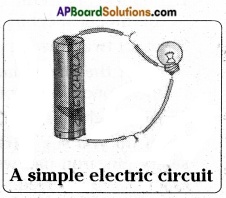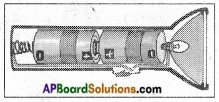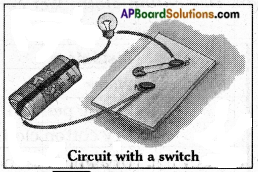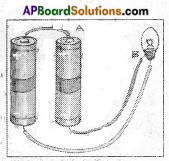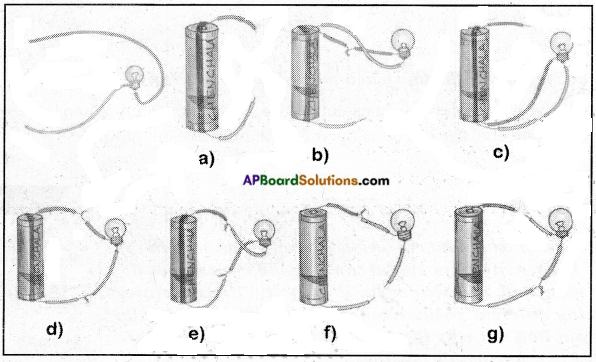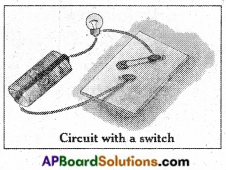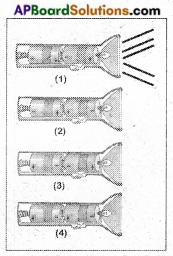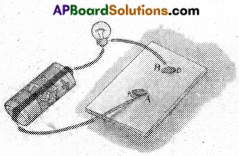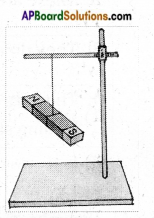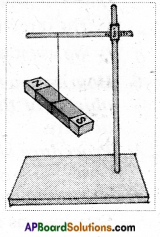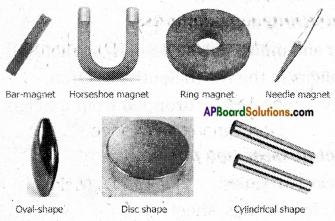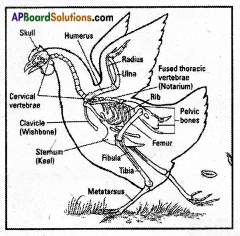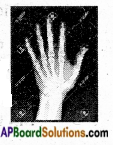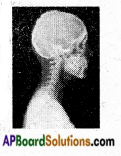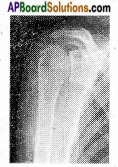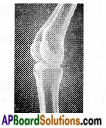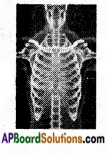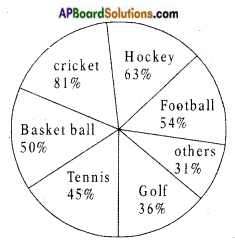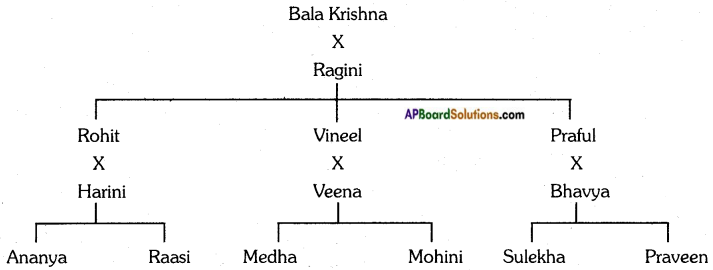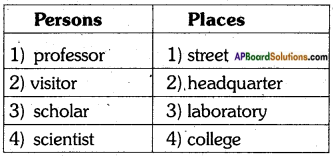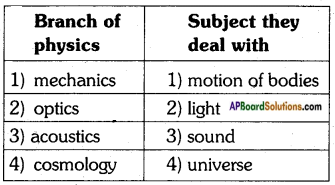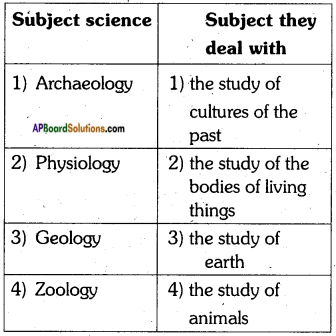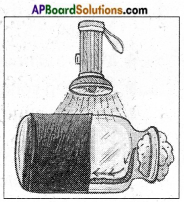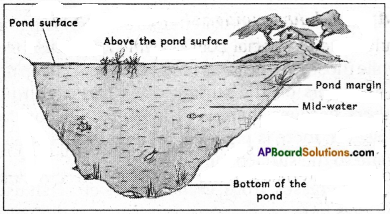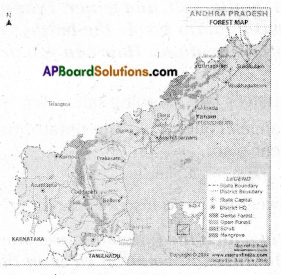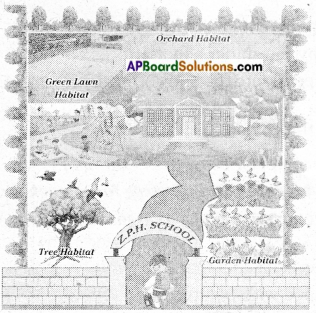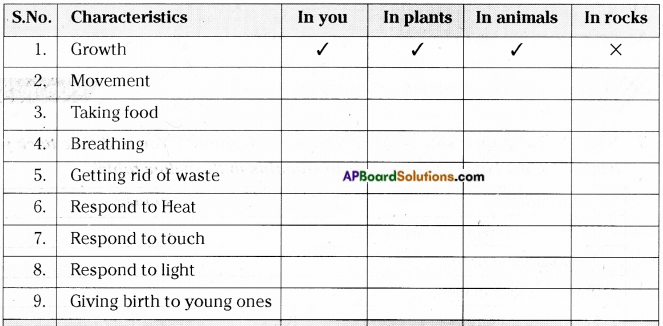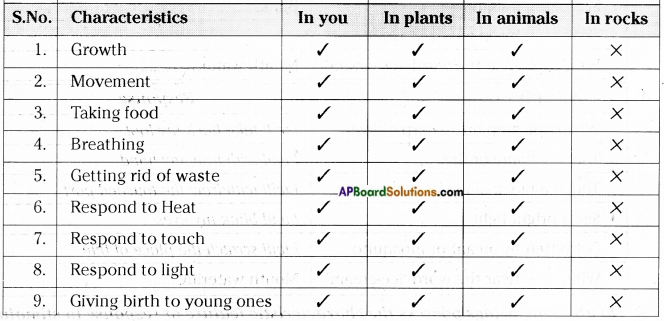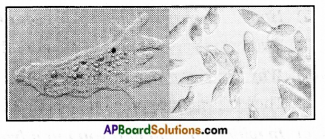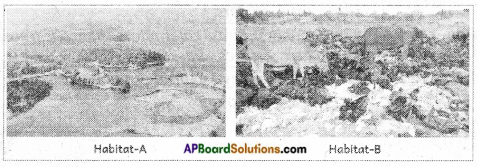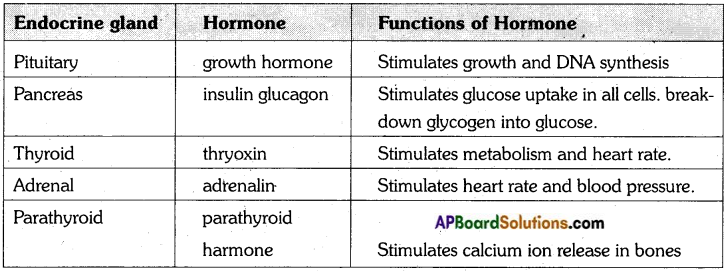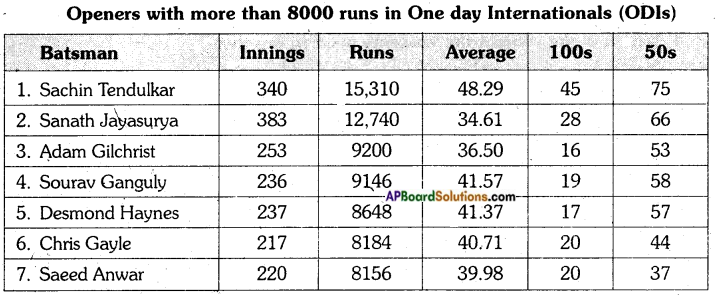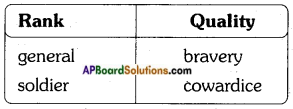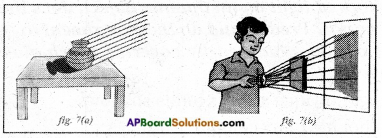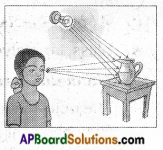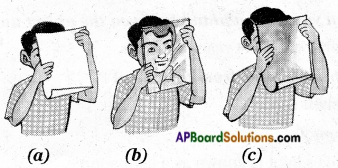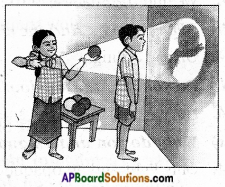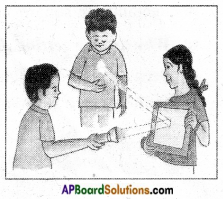AP State Syllabus AP Board 6th Class Science Important Questions Chapter 2 Knowing About Plants
AP State Syllabus 6th Class Science Important Questions 2nd Lesson Knowing About Plants
6th Class Science 2nd Lesson Knowing About Plants 2 Mark Important Questions and Answers
Question 1.
What are the types of venation?
Answer:
There are two types of venation 1. Reticulate venation 2. Parallel venation.
Question 2.
What are the functions of stomata?
Answer:
Stomata regulate the gaseous exchange between the plant and environment and transpiration.
Question 3.
What are the main parts of the plant?
Answer:
Roots, stem, leaves, flowers are the main parts of the plant.
Question 4.
How many types of root system? What are they?
Answer:
There are two types of root system. 1. Tap root system 2. Fibrous root system.
![]()
Question 5.
Give examples for the fibrous root system.
Answer:
Monocot plants have the fibrous root system. Ex. Grass, rice, wheat etc.
Question 6.
What is cotyledon?
Answer:
The seed leaf present within the seed is called cotyledon.
Question 7.
Give examples for monocots and dicots.
Answer:
Monocots: Grass, rice, wheat, maize etc.
Dicots: Mango, pulses, fruits
Question 8.
In a bean how many cotyledons are present?
Answer:
In a bean seed two cotyledons are present.
Question 9.
Which type of root system the dicot plants have?
Answer:
The dicot plants have tap root system.
Question 10.
Give examples of tuberous roots.
Answer:
Radish, carrot, beetroot, sweet potato are examples for tuberous roots.
Question 11.
What is stem?
Answer:
The main axis of the shoot system is called the stem.
Question 12.
What is a node ?
Answer:
Node is the part of stem where the leaf arises.
Question 13.
What is internode?
Answer:
The part of the stem between two successive nodes is called the internode.
Question 14.
In which plant do you observe the parallel venation ?
Answer:
In monocot plants such as grass, cereals, millet plants we will observe the parallel venation.
Question 15.
What is transpiration?
Answer:
Plants release excess of water in their body through stomata in the form of vapour is called transpiration.
Question 16.
What do you know about the flower?
Answer:
The flower is colourful and attractive part in a plant.
Question 17.
What are petals?
Answer:
The colourful and fragrant parts of a flower is petals.
![]()
Question 18.
How do you say the millet plant is a monocot?
Answer:
Millet has only one cotyledon in a seed. So, millet is a monocot.
Question 19.
Name the traditional food of Konaseema, prepared with the help of jackfruit leaves.
Answer:
Pottikkalu.
Question 20.
What type of venation is found in the leaves of plants with fibrous roots?
Answer:
Parallel venation is found in the leaves of plants with fibrous roots.
Question 21.
If the leaves have the reticulate venation what would be the type of root?
Answer:
The plants having the reticulate venation have the tap root system.
Question 22.
Give examples for modified stems.
Answer:
Potato, turmeric, garlic, ginger and sugarcane are examples for modified stems.
Question 23.
Define fibrous root system.
Answer:
A cluster of thin and uniform roots arising from the base of the stem is called fibrous root system.
Question 24.
Why Pottikkalu have jack fruit flavour?
Answer:
The leaves of jack fruit are used in the preparation of Pottikkalu. So, Pottikkalu have jack fruit flavour.
Question 25.
Give examples of plants having supporting roots.
Answer:
Banyan tree, Sugarcane and Maize plants have supporting roots which grown above the ground level.
![]()
6th Class Science 2nd Lesson Knowing About Plants 4 Mark Important Questions and Answers
Question 1.
Write the differences between potato and sweet potato?
Answer:
| Potato | Sweet potato |
| 1. It is a modification of stem. | 1. It is a modification of root. |
| 2. As it stores the food in the stem it is known as tuber. | 2. As it stores the food in the root, it is known as a tuberous root. |
Question 2.
Write the differences between tap root system and fibrous root system?
Answer:
| Tap root system | Fibrous root system . |
| 1. A tap root differentiated primary root of the plant. | 1. The fibrous root is different from the primary root of the plant. |
| 2. Tap root system consists of tap root and lateral roots. | 2. A cluster of thin and uniform roots round here. |
| 3. Tap root penetrates deep into the soil. | 3. Fibrous root is shallow and does not penetrate as deeply. |
| 4. It helps the pLant to survive in drought conditions. | 4. It helps the plant to prevent the soil erosion. |
| 5. Tap root system found in dicot plants. | 5. Fibrous root system found in monocot plants. |
Question 3.
In drought conditions which root system is help the plant to survive?
Answer:
- When there is no rainfall for several years it leads to drought.
- When a drought hits, soil dries out, the crops with deep roots have access to deep stored moisture.
- The taproot system has the access to get the moisture from deep levels of the soil.
- So, tap root system help the plant to survive in drought conditions.
Question 4.
What are the differences between terminal bud and auxiliary bud?
Answer:
| Terminal bud | Auxiliary bud |
| 1. It occurs at the end or top of the stem. | 1. It occurs at a leaf node. |
| 2. It helps the plant to grow taller so that the plant gains more height. | 2. It helps to provide support to the plant holding leaves, buds and flowers. |
| 3. Due to this the plant grow in a straight forward. | 3. Due to this the plant have more branches like a bush. |
Question 5.
What are the stem modifications?
Answer:
- In some plants, the stems are modified to perform the function of storage of food, support, protection and vegetative propagation.
- Potato, turmeric, garlic, ginger, sugarcane store food materials in the stem so that the stem bulges in size. These are known as modified stems or tubers.
![]()
Question 6.
What is venation? What are the types in it?
Answer:
- The arrangement of veins in a leaf is called venation.
- There are two types of venation. 1. Reticulate venation 2. Parallel venation
- The veins are arranged in either web-like or network all over the lamina it is called reticulate venation.
- The veins are arranged parallel to one another all over the lamina is called parallel venation.
Question 7.
How do you distinguish the differences between reticulate and parallel venation?
Answer:
| Reticulate venation | Parallel venation |
| 1. The veins are arranged in the form of a network or a web like arrangement all over the lamina. | 1. The veins are parallelly arranged with one another ail over the lamina. |
| 2. It is seen in the dicot plants. | 2. It is seen in the monocot plants. |
| 3. Ex. Mango, Hibiscus, Ficus etc. | 3. Banana, bamboo, wheat, maize etc |
Question 8.
How do you find the root system without pulling it out?
Answer:
- It is possible to find the root system without pulling it out.
- By observing the leaf venation, we will identify whether that plant has tap root or fibrous roots.
- If the leaf is having a parallel venation, that root of the plant will be fibrous root system.
- If the leaf is having reticulate venation, that root of the plant will be a tap root system.
Question 9.
Write the differences between monocots and dicots?
Answer:
| Dicots | Monocots |
| 1. Dicots have two cotyledons in the seed. | 1. Monocots have only one cotyledon in the seed. |
| 2. Dicots have taproot system. | 2. Monocots have fibrous root system. |
| 3. Leaves in dicots have reticulate venation. | 3. Leaves in monocots have parallel venation. |
| 4. Ex. Apple, mango, brinjal, beans. | 4. Ex. Wheat, corn, rice. |
Question 10.
What are stomata? What is it importance?
Answer:
- The small pores present on the leaf surface is called stomata.
- The stomata act like our nose in the plant.
- These are helpful in the exchange of gases between the plant and the atmosphere.
- Plants release excess water in their body through stomata by the process of transpiration.
![]()
Question 11.
What are the functions of root?
Answer:
- Fixes the plant to the soil.
- Absorbs water and minerals from the soil.
- It stores the food in some plants like carrot and beet root.
Question 12.
What is transpiration and what its importance?
Answer:
- The process of releasing water in the form of vapour through stomata is called transpiration.
- It helps to keep the leaves healthy.
- It helps to provide water to leaf cells for photosynthesis.
- The temperature of the plant body maintained constant.
Question 13.
Write the functions of the stem?
Answer:
The stem,
- supports the branches, leaves, flowers and fruits.
- transports water and minerals from root to other parts.
- transports food from leaves to other parts through stem.
- stored food in the plant’s potato, ginger, turmeric, garlic, etc.
Question 14.
Which questions do you pose to know about the plants and its parts?
Answer:
- Which part of the plant absorbs water?
- What are the important parts in a plant?
- What is the function of stem?
- Why some of the roots are modified?
Question 15.
Write the functions of leaf.
Answer:
Leaves play an important role in the life of plant, they are
- help in respiration
- to carry out transpiration
- to prepare food by the process of photosynthesis
Question 16.
What are the root modifications?
Answer:
- In some plants, the roots change their shape and modified to store the food materials.
- The roots of radish, carrot, beet root modified to store the starch.
- Aerial roots grow above the ground, typically providing support to the plant.
Ex: Banyan tree, sugarcane, Maize etc. - In mangroves the aerial roots helpful in respiration.
Question 17.
Write about Pottikkalu?
Answer:
- Pottikkalu is a traditional food of Konaseema of Godavari districts.
- Leaves of jack fruit are used in its preparation.
- They make cups with these leaves and fill them batter made of black gram and rice rawa.
- These cups are steamed to get Pottikkalu. These are healthy and delicious with jack fruit flavour.
Question 18.
How do you appreciate the beauty of a flower?
Answer:
- Flowers are the colourful parts of the plants.
- They attract insects for pollination and produce fruits.
- Colourful flowers give beauty to nature.
- By seeing the colourful flowers, we get happiness and they give us a positive effect on mood.
Question 19.
What is a root? Write about its function?
Answer:
- The underground part of the main axis of a plant is known as the root.
- It fixes the plant to the soil.
- It absorbs water and minerals from the soil.
- It stores food in some plants like carrot and beet root.
![]()
Question 20.
Which roots are known as tuberous roots? Why?
Answer:
- Radish, carrot, beetroot, sweet potato is known as tuberous roots.
- These plants store food materials in their roots so that they were known as tuberous roots.
Question 21.
How will you tell which part of a plant is the stem and which is the root?
Answer:
- The part of the plant that presents above the surface of soil is the stem.
- The part of the plant that presents below the soil surface is the stem.
- Stem possess nodes, inter nodes and leaves etc. whereas root cannot have these.
Question 22.
What would happen if flowers do not have different colourful petals?
Answer:
- The flower has colourful parts called petals.
- The beautiful petals attract insects for pollination and produce fruits.
- If flowers do not have different colourful petals, they can’t have a fragrance to attract the insects.
- If the plant does not have colourful petals and fragrance, they cannot attract the insects so that fruits are not formed.
Question 23.
What questions do you ask to know more about the aerial roots of Mangroves?
Answer:
- What are mangroves?
- Where do we find these mangroves?
- What is the importance of mangroves?
- What is the special character of mangroves?
Question 24.
Fill the following table by observing the plant leaves?
| Sl.No | Name of the plant | Type of venation |
| 1. | Hibiscus (Mandara) | |
| 2. | Paddy | |
| 3. | Peeple (Raavi) | |
| 4. | Jo war |
Answer:
| Sl.No | Name of the plant | Type of venation |
| 1. | Hibiscus (Mandara) | Reticulate venation |
| 2. | Paddy | Parallel venation |
| 3. | Peeple (Raavi) | Reticulate venation |
| 4. | Jowar | Parallel venation |
Question 25.
Draw the diagram of the tap root system and fibrous root system of a plant?
Answer:

![]()
6th Class Science 2nd Lesson Knowing About Plants 8 Mark Important Questions and Answers
Question 1.
What will happen if plants cannot store their food?
Answer:
- Plants can store their food by the process of photosynthesis.
- Some of the food is used by the plants for various metabolic processes.
- The remaining food is stored in the various parts of the body such as roots, stem, leaves, seeds, fruits etc.
- This stored food helps the plants to survive in unfavourable conditions.
- Other animals also depend on plants for their food.
- If the plants cannot store the food, the animals that depend on plants get hungry and gradually die.
- When unfavourable conditions like drought appear, the plants will also ultimately die.
Question 2.
How do you prove that stem conducts water?
Answer:
Aim: To observe the conduction of water by a stem.
What you need: A small twig of balsam plant, a glass of water, red ink.
What to do:
- Take a glass of water and add a few drops of ink to it.
- Now place the small twig in the water.
What do you see: The stem turns reddish.
What do you learn: The red ink is taken and transported by the stem upwards.
